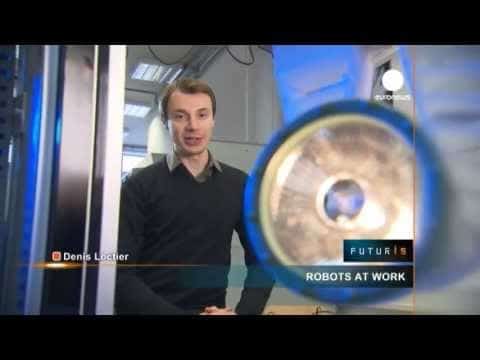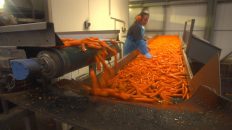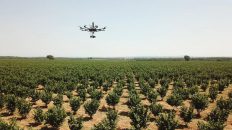Manual packaging is tedious work – can robots alleviate the boredom?
Engineers at the Technical University Munich are testing a talking workstation that helps to pack bulky electrical appliances.
Tasks that do not require much physical strength are left to people. Video cameras monitor safety while a robotic hand picks up heavy objects and packs them into boxes.
Carola Zwicker is an assembly and robotics engineer, IWB, Technical University in Munich:
“This demonstration system recognises the required object – such as the TV set – and localises its position. After detecting the object’s location, the robot picks it up and puts it in the box safely and carefully. And if there’s a problem, the person can intervene to help”.
The robot can handle objects of various shapes and weights – so manufacturers can deploy the same packaging system on various production lines. Each workflow can be easily modified using simple computer interfaces and voice commands.
Jürgen Blume is a programmer at the Technical University Munich:
“The end users of this technology won’t need experts to come over to their factory to reprogram the robot for a new product – that should save them time and money.”
This European Union research project aims to increase industrial productivity by teaming up human workers with safe and intelligent robots.
Carola Zwicker, assembly and robotics engineer, Technical University Munich:
“The project will make important contributions to developing the flexible robotic gripper mechanism and advancing human-robot collaboration. It also introduces new simple and intuitive programming style, opening new possibilities for the industry.”
Hardware and software modules can be joined together like jigsaw pieces to create machines with diverse functions. This robot knows how to arrange car batteries, understands speech and gestures, and finds its way around the room.
Harald Bauer, robotics and adaptive system engineer, PROFACTOR:
“Our project creates a toolkit of robotic skills and abilities that can be used to implement completely new applications in an easy and intuitive way.”
Intended for car factories, this robot is flexible enough to simplify industrial transition from combustion engines to electric drives.
Harald Bauer, robotics and adaptive system engineer, PROFACTOR:
“The focus of this project is not to replace people, but to make their work as easy and convenient as it can possibly be. It will help to prevent spine problems by creating ergonomic workplaces and liberate workers from tedious tasks – and that’s the main goal.”





